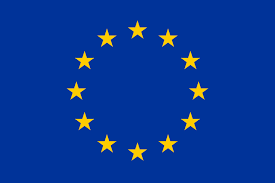What is frailty? The gap between end-users and healthcare professionals’ point of view
There’s no big difference between being blind and seeing things from only one point of view. This is something that we know by heart at eCare, and also one of the reasons why our project starting point was to spend time discussing with end-users and healthcare, socialcare, and IT professionals. As our colleague Adriano explained in this article, “No man is an isle” and so it is when discussing integrated care.
At CSI (Consorci Sanitari Integral) in Barcelona, we organised 3 workshops in December to go deeper into the “frailty” concept. We also shared points of view about loneliness, how to detect it, what are the needs for facing it, what actors are involved in the different healthcare areas, how things will be in the future… A very interesting debate indeed, in which students and senior citizens up to 94 years old participated! The discussions were led by Melinda Jimenez (ITUC Social Work Officer), Evora Betancour (Geriatrician) and Meritxell Davins (ITUC eHealth and Innovation Officer).
Here are some conclusions:
- In the patient’s workshop, we realised the enormous difference of perception of the “frailty” concept between end-users and professionals. For end-users, frailty is a bad thing related to people who do not want to fight for their lives anymore; unlike the opinion of professionals, who think that frailty is a state of unintentional vulnerability and requires help from everyone in the system and society.
Another issue that was highlighted during this workshop was the relation of frailty with the elderlies’ fear of other people knowing that they are alone and fragile, plus the fear of being cheated or feeling helpless.
- In the professionals’ workshop, we detected that we still have a long way to go to improve this population group’s health and care assistance. It was also highlighted the elderlies’ need for being helpful in order to feel useful and have a sense of life.
- In the IT systems’ workshop, the fragmentation of the information systems was spotted. It seems that the interventions are being reactive, non-participatory and that it is necessary to register data – not just for the sake of collecting data but for using it to improve the attention to people in a situation of frailty.
The project is just starting. We will continue moving forward in this great universe of frailty prevention to improve the elderlies’ life.
Meritxell Davins
ITUC eHealth and Innovation Officer at CSI






